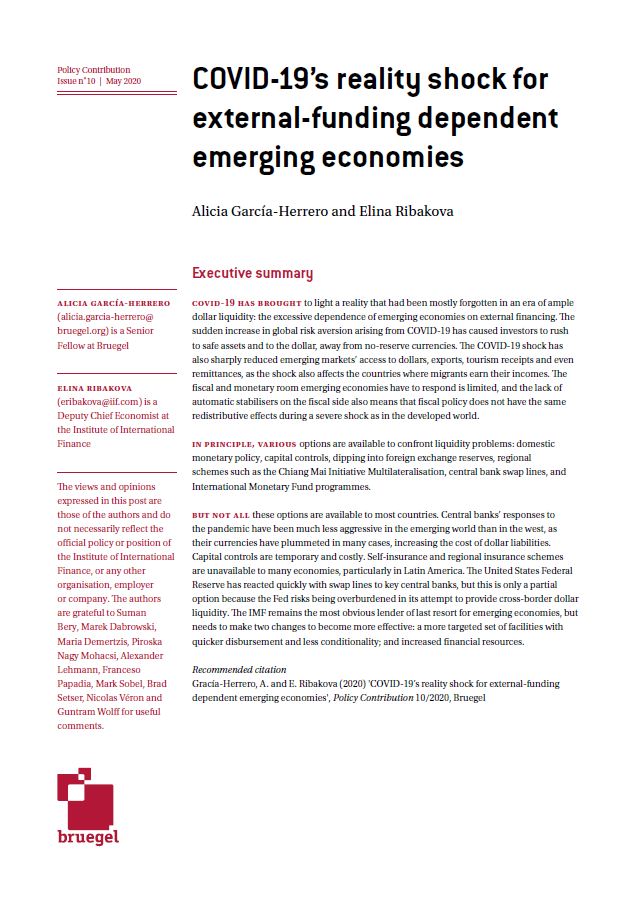Policy Contribution
COVID-19’s reality shock for external-funding dependent emerging economies
COVID-19 is by far the biggest challenge policymakers in emerging economies have had to deal with in recent history. Beyond the potentially large negative impact on these countries’ fiscal accounts, and the related solvency issues, worsening conditions for these countries’ external funding are a major challenge.
COVID-19 has brought to light a reality that had been mostly forgotten in an era of ample dollar liquidity: the excessive dependence of emerging economies on external financing. The sudden increase in global risk aversion arising from COVID-19 has caused investors to rush to safe assets and to the dollar, away from no-reserve currencies. The COVID-19 shock has also sharply reduced emerging markets’ access to dollars, exports, tourism receipts and even remittances, as the shock also affects the countries where migrants earn their incomes. The fiscal and monetary room emerging economies have to respond is limited, and the lack of automatic stabilisers on the fiscal side also means that fiscal policy does not have the same redistributive effects during a severe shock as in the developed world.
In principle, various options are available to confront liquidity problems: domestic monetary policy, capital controls, dipping into foreign exchange reserves, regional schemes such as the Chiang Mai Initiative Multilateralisation, central bank swap lines, and International Monetary Fund programmes.
But not all these options are available to most countries. Central banks’ responses to the pandemic have been much less aggressive in the emerging world than in the west, as their currencies have plummeted in many cases, increasing the cost of dollar liabilities. Capital controls are temporary and costly. Self-insurance and regional insurance schemes are unavailable to many economies, particularly in Latin America. The United States Federal Reserve has reacted quickly with swap lines to key central banks, but this is only a partial option because the Fed risks being overburdened in its attempt to provide cross-border dollar liquidity. The IMF remains the most obvious lender of last resort for emerging economies, but needs to make two changes to become more effective: a more targeted set of facilities with quicker disbursement and less conditionality; and increased financial resources.
Recommended citation
García-Herrero, A. and E. Ribakova (2020) ‘COVID-19’s reality shock for external-funding dependent emerging economies’, Policy Contribution 10/2020, Bruegel
Podcast with the authors discussing this publication










